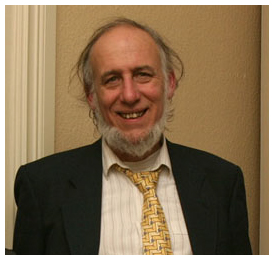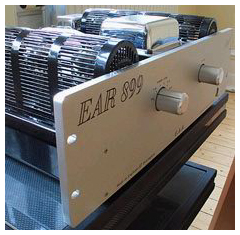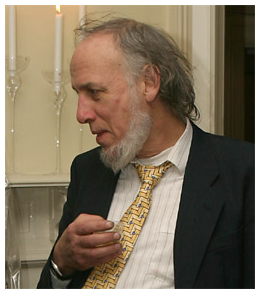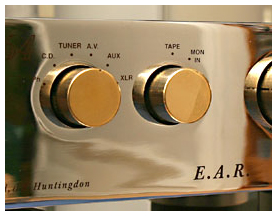|
You are reading the older HTML site
Positive Feedback
ISSUE
24
An Interview with Tim de Paravicini of E.A.R. Reprinted courtesy of Hififorum.nu
E.A.R., is a company that has been into tube designs for Audio equipment for a long time. Tim de Paravicini is the founder, owner, tube/electronics-designer, and motor behind the company. At the "Gala Premier" of Mårten Designs visitor center HiFiForum.nu had an opportunity to talk to Tim. Tim is a very friendly person so Pac & Neo had a very nice 1 hour and 30 minutes conversation with Tim about his design philosophies, E.A.R. as a company, the past and the future of E.A.R. and the audio industry. Per Adelsson: So Tim, lets start off with some philosophy, why are you in this business, and why do you design audio? Tim de Paravicini: For me it is passion for music and the business. If money was why I did things I would have been in the banking or stock business. The thing is, if you do it right in this business you can support yourself, but I'm not interested in being a Richard Branson or something. Being in the high-end audio is similar to running a very good restaurant—those that have stars in Guide Michelin. You need to know why you do certain things, and not just follow a recipe—you need to focus on quality. PA: What about your designs, what's your angle? TP: Once again I do the analogy with the restaurant. They combine ingredients together so that the combination becomes something greater than the ingredients. If you follow a recipe and use the same ingredients at home, it never becomes the same thing. It's the same with what I design. I put things together and people can try to copy, but they will never be able to understand why I did it the way I did. PA: You also do electronics for studios? TP: Yes I do. I have sold tape machines to Mobile Fidelity, Bob Ludwig, Pink Floyd, just to name a few. The last SACD from Pink Floyd had a lot of my electronics in there. PA: Do you go about doing your electronics differently between the professional equipment and Hi-Fi equipment? TP: No personally I don’t. But I find that some studios do not listen in an home environment, they just use their working environment to listen. So some of them do not have very good equipment. Their mixing consoles use cheap ICs and things like that. Some of the modern "Backstreet" studios are even all computerized... PA: For an audio designer what do you believe is more important, measuring or listening? TP: I do both. I have a lot of real life influences around me. I have a piano and a drum kit at home. My daughter plays the cello and the piano, so I have a lot of live sources to listen to. When it comes to measuring I have found that the common usual tools, such as for instance distortion, does not give you the whole story. You need to correlate what you hear with what you measure. I have some measuring techniques that I haven’t published that helps me to correlate my measurements with sound. The trick is to understand which characteristics cause what influences. It’s the same when I look at a digital system, why am I hearing that thing, where does it come from and so on. You have to correlate your measurements.
TP: MPEG3 has really poor quality. But if you are to use it for storing a speech or to store highly compressed data for instance, a black box crash recorder in a car, it does its job. In the digital audio formats I have been supporting, via minor consultations, the Sony SACD. It's the best of all the basic systems out now for what I call high-end digital audio. Now obviously there is a conflict with the home theatre systems, but they are for a different audience. People watching movies are more interested in special effects, they have 5.1, 6.1 and 7.1, and no standardization. I've always been a believer in standardization. Philips did the right thing with the audio cassette, they gave everyone the possibility to use it so that they could post it. On the basic CD, Philips did some of the same things. But now we have too many companies trying to keep control. It's a bit like what happened in the video arena some 20 years ago with Betamax, Video2000, and VHS. The best system didn't win. VHS which was the worst system of them all won. If it only was about the technical issues we could choose SACD and call it a day. The problem is that it is all about politics now. The format that should have won is the laserdisc since you can get a lot of information on a disc that size. PA: During our discussions you're coming back to vinyl, is vinyl the optimum media? TP: A good vinyl recording which is pressed properly has more than 90dB dynamic range which is more than enough for most situations and the resolution and frequency response is perfectly good. The problem was the quality control when producing vinyl. 20 years ago I told the digital people that they needed 400kHz bandwidth and 24bit resolution. Today they are one octave short from perfection... When it comes to storage it is something different. Pack up and store a vinyl record properly and it will last for a very long time. A CD has to be perfect or it doesn't work. The CD records don't last that long and hard drives for computers will last even shorter. I believe that the next step in storage media might be the solid state memory.
TP: I can do a digital tube amplifier, it's not that difficult... With transistors it's not impossible to make a good digital amplifier. The problem is how to do it and a lot of companies have done badly so far. The reason for the design is to be efficient and get a lot of power with low energy consumption. For a high end amp, it's like with a Ferrari or Rolls Royce, if you can afford it you don't say it only does 100km out of 30L of gas. If you can afford to buy it you can afford the gas. PA: Your statement product—the E.A.R. 509—is moderately priced compared to other statement products from other companies, why is that? TP: I use an analogy, the Mini car was a brilliant piece of engineering design. It could stay in production for many years because it was right. The 509 is like the mini, it’s a fundamentally correct design with technology pushed to the limit, and I couldn’t make any better without going crazy from a cost perspective. I tell people it’s a good amplifier at a price that is affordable. Ten years ago during the European recession, I stopped making it, but the demand has been such lately that I have taken it into production again. PA: We've had a chance to listen to the stunning Elvis recording, can you tell us more about it? TP: The recording is the original master multi-track before the background vocals and all the other has been put on to become the final product. It is done live in the studio since Elvis wanted the interaction with the musicians. I think it is an awesome recording since you really can hear what the intent of the songs are and feel what Elvis wanted with the songs. As you added all the other stuff to make the final product that "copy-copy" of all the other stuff has made the quality go down until you’ve lost the original feeling. Elvis was an awesome musician/singer. PA: Is Elvis one of your favourites? TP: Yes, I would have to put him as one of my top six favourites. Others are Wilson Picket, Otis Redding, Jackie Wilson, and a lot of Reggae. But when it comes to Reggae, only the commercial type. Reggae broke rules and did their own thing. I have great respect for the Beatles and also for the Rolling Stones. I listen to Folk Music, Blues and Indian Music. PA: How big is E.A.R. today, how many employees?
PA: Which are the biggest markets for E.A.R.? TP: Germany used to be my biggest market. France does well for us. Japan is one of my two or three biggest markets. I have to be thankful since Japan is usually a very difficult market for western companies. PA: What do you think about the globility of the companies, will there eventually only be a few very big companies left in the audio business? TP: In the mass consumer market I see this happening but I don't see it in the real High End market. We at www.HiFiforum.nu want to thank Tim for taking the time to talk to us and we wish Tim and E.A.R. the best in the future. Thanks to Ljudcenter, Halmstad for the use of their Minidisc and microphone
|


 PA: DVD-A, SACD, MP3, ...there is a "War of the
formats" raging. What's your reaction to all of that?
PA: DVD-A, SACD, MP3, ...there is a "War of the
formats" raging. What's your reaction to all of that? PA: Digital
Amplifiers, the new kid on the
block, what's your opinion about them?
PA: Digital
Amplifiers, the new kid on the
block, what's your opinion about them?  TP: We have 6 people in the company today, we don't want to be too big.
Having 30 people or more increases the administration a lot and I don't want to
do that.
TP: We have 6 people in the company today, we don't want to be too big.
Having 30 people or more increases the administration a lot and I don't want to
do that.